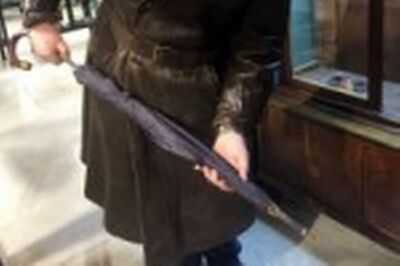
The identity of the killer behind one of the Cold War’s most infamous political assassinations, which took place on British soil, has remained one of history’s biggest unsolved mysteries to this day. Bulgarian dissident writer Georgi Ivanov Markov met his end in what was dubbed the “Umbrella Murder” after he was hit in the leg by a fatal poisoned pellet fired from an umbrella.
The poison pellet that killed the Bulgarian defector is believed to have contained a deadly dosage of ricin, the same deadly poison that the Southport killer, Axel Rudakabana, attempted to produce in his bedroom. Markov was an author and playwright in the 1950s and 60s. He was known for his critical writings about the Bulgarian government, which was a communist regime during his lifetime.
In 1969 Markov defected from Bulgaria, relocating to London where he began working for the BBC as both a broadcaster and journalist. During his career he worked at the Eastern European section of the BBC Overseas Service in Aldwych, London and continued to lambast the regime in reports.
READ MORE: Freddie Mercury's secret child bears ‘unmistakable resemblance’ to Queen star
READ MORE: Drivers given £1k Highway Code warning as Brits told to keep one item
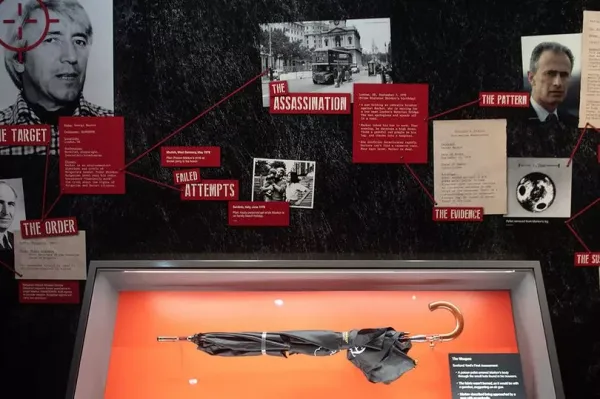
The assassination occurred on September 7, 1978 when then-49-year-old Markov was headed to work from London’s Waterloo Bridge. While waiting for his bus to work Markov suddenly felt a small, sharp pain in the back of his thigh. After the pain hit him he turned to see a stranger who had dropped his umbrella bending down to retrieve it.
Markov went on to claim the stranger with the umbrella muttered something resembling an apology, possibly in a foreign language, before quickly crossing the street and getting into a taxi. Once Markov arrived at work he realised the stinging sensation in the back of his thigh hadn’t subsided. The author checked his leg and found what looked like a small red pimple.
While not imminently concerning in the moment, later it became apparent the incident would have deadly consequences for Markov. By the evening, Markov had a fever so severe he had to be admitted to St. James Hospital in Balham, South London. Over the next few days Markov’s health rapidly deteriorated.
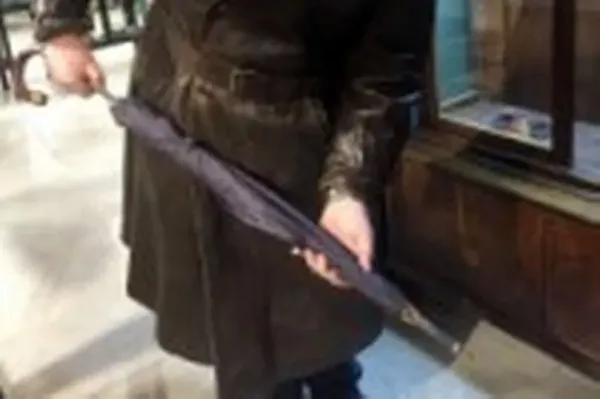
And four days after being admitted to the hospital, on September 11 1978, Georgi Ivanov Markov was pronounced dead. The official cause of Markov’s death was listed as septicemia, a form of blood poisoning.
The case has stumped investigators until this day, and Ex-Met Det Chief Insp Peter Kirkham said it is likely to remain unsolved. "Even now, with DNA, sophisticated fingerprint lifting techniques, CCTV everywhere, Automatic Number Plate Reading technology recording vehicles passing thousands of sites on roads around the country, facial recognition technology capable of scanning hundreds of faces per minute looking for a suspect, mobile phones basically putting a personal tracking device in everyone's pocket and all the rest, the Senior Investigating Officer picking up the case would be pessimistic about getting a result," he said.
"But back then, when none of that even existed, it would take a huge amount of luck to get anywhere at all with the investigation.
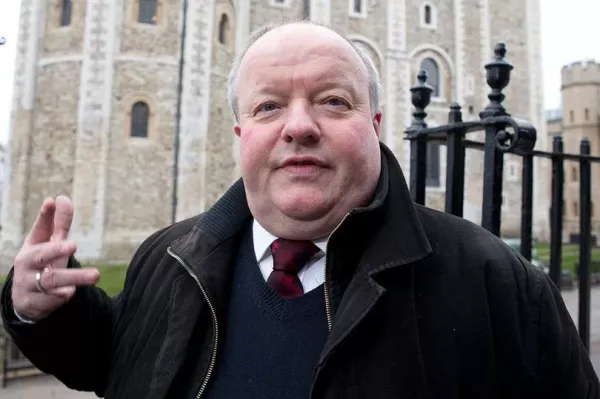
"As for whether or not there is likely to be any renewed interest from the Metropolitan Police in this case, I think the answer is a resounding 'No'. The Met are totally overwhelmed by the demands placed upon them by today's crime and disorder and that demand is constantly rising as, yet again, they find their numbers falling.
"With the principal suspect now dead, the victim's family no doubt long since given some degree of closure by the security services and all the difficulties of progressing the case still there, there is absolutely nothing to be gained from any further police investigation. Sure, Scotland Yard never officially gives up on any unsolved murder case. But that is not the same thing at all as actually doing anything about it."
In 2005, The Sunday Times reported on a serialisation containing leaks of files in the Bulgarian Secret Service. The documents, uncovered by a Sofia-based investigative journalist Hristo Hristov, branded Francesco Giullino the primary suspect behind Markov’s murder. The leaks alleged Giullino operated under the code name “Piccadilly” and was ordered to “neutralise” Markov and acted on behalf of the Communist-era Durzhavna Sigurnost – the Bulgarian equivalent of the KGB.
Previously in 1993, Gullino, a Dane of Italian origin, had been questioned and detained by the British and Danish police in Copenhagen. When questioned, Gullino admitted to having been in London when Markov was murdered but denied having been involved in any way.
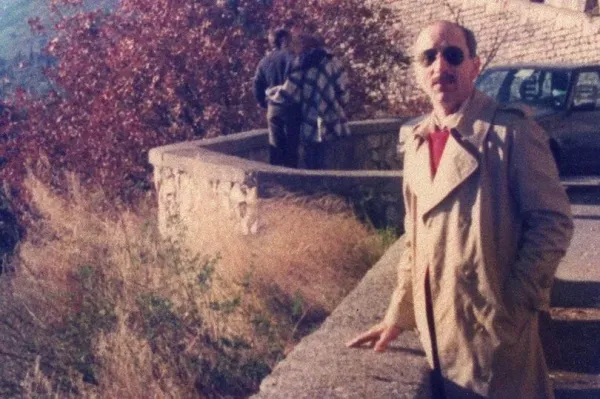
Despite refuting accusations linking him to the murder, during Gullino's life he received two Bulgarian state medals “for services to security and public order”. In 2023, the Danish Broadcasting Corporation, DR, published a three-part documentary series on the life of Gullino and his alleged espionage activities.
The series draws attention to the 1993 interrogation between Gullino and Scotland Yard detectives Christopher Bird and David Kemp. While denying involvement in Markov’s the murder, during the interrogation Gullino admitted to having a relationship with the Bulgarian State.
In June 2021, the team behind the documentary series found and interviewed Gullino. Gullino denied all the allegations raised against him.
However, shortly after the interview with Gullino was found dead in his apartment in Wels, Austria, in August 2021, aged 75 – passing away before the documentary was published.
In 2000, Markov was posthumously awarded the Order of Stara Planina, Bulgaria’s most prestigious honour, for his “significant contribution to the Bulgarian literature, drama and non-fiction and for his exceptional civic position and confrontation to the Communist regime”.
The killer who carried out the hit on Markov’s life never faced justice and to this day his identity still remains a mystery.
Bulgaria shut its investigation into the "Umbrella Murder" on September 11 2013, citing the expiration of the 35-year statute of limitations for the crime. The Bulgarian prosecutor's office said the probe was discontinued because no suspect had been identified, arrested, or charged, which would have been necessary to extend the 35-year period.